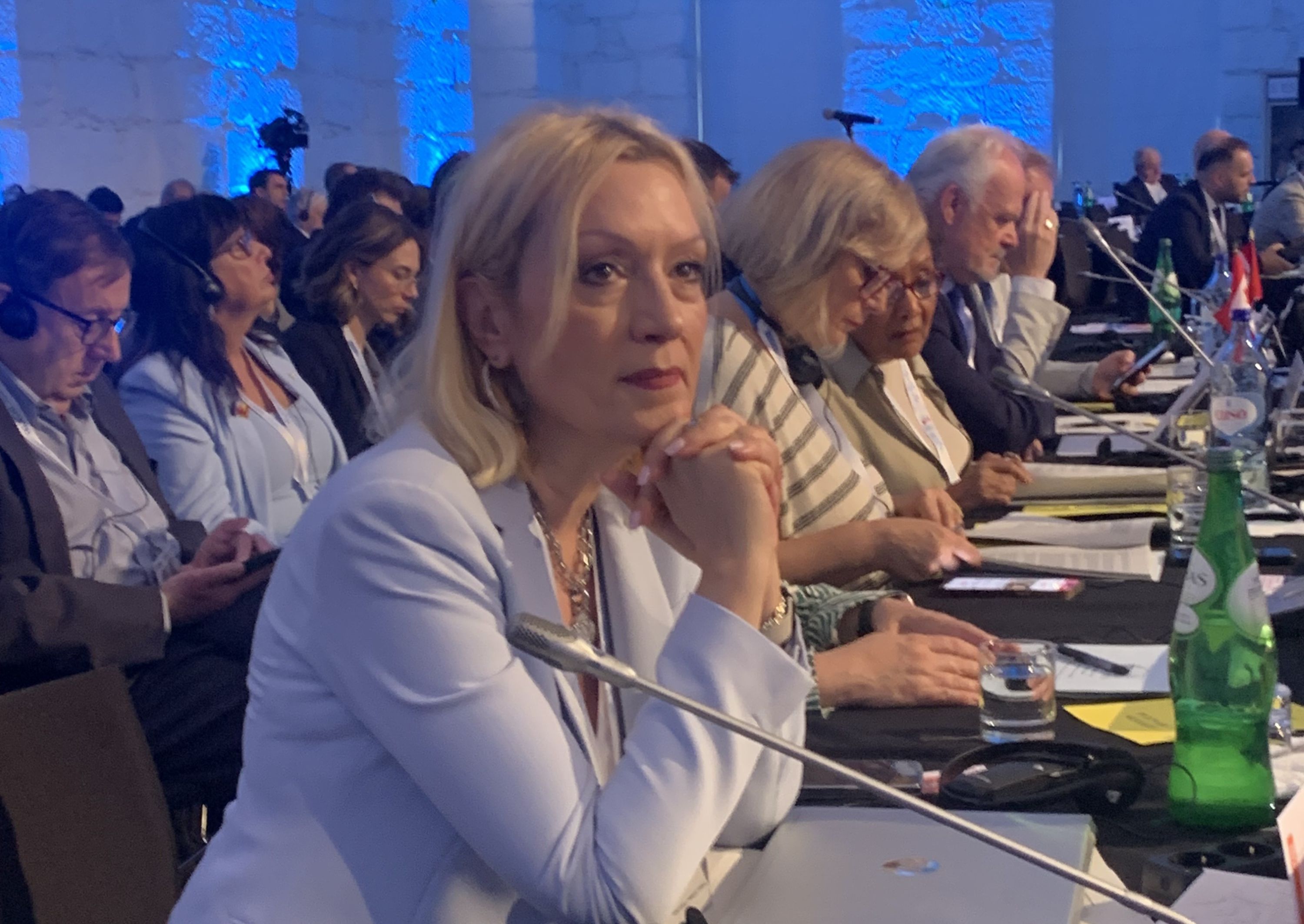The vice-president of the parliamentary assembly of the organisation for security and cooperation in Europe (OSCE PA), Irene Charalambides, urged firm leadership and respect for international law during times of geopolitical instability. Speaking on Thursday in Porto, on the final day of the assembly’s 32nd annual session, she highlighted the urgent need for clear voices and stable positions.
Addressing the plenary on the situation in the Middle East, Charalambides focused on the humanitarian toll in Gaza. She reported that more than 56,000 people have died in 21 months of conflict, the majority of whom are civilians. Gaza, she said, has been effectively flattened, with two million residents living without access to essential supplies amid ongoing bombardment.
Charalambides criticised the international community’s inaction, noting that neither the United States nor the European Union has imposed even the mildest sanctions or measures. She stressed that the events in Gaza cannot be justified as self-defence under international law. Furthermore, she warned that protests against violations of international humanitarian law are often unjustly labelled as antisemitic, suppressing global outrage.
She concluded her remarks with a call for an immediate ceasefire and unhindered humanitarian aid access to Gaza.
In a separate intervention, marking the 50th anniversary of the Helsinki final act, Charalambides reflected on its adoption during the cold war amid deep distrust. She described it as proof that responsible leadership can choose dialogue over conflict. However, she expressed concern over the current decline of international multilateralism. She urged the European Union to take a more active role in addressing security challenges.
Charalambides also pointed out that the outbreak of hostilities between Israel and Iran has diverted international attention away from the humanitarian crisis in Gaza and the ongoing war in Ukraine. She emphasised that these conflicts continue to cause significant human casualties and wider humanitarian damage.
On the issue of decision-making within the OSCE, she referred to a resolution proposing to limit the unanimity rule. While recognising the need for reform, Charalambides underscored the importance of preserving unanimity, especially for smaller states. She argued that it guarantees balance and equal participation within the organisation.






Click here to change your cookie preferences